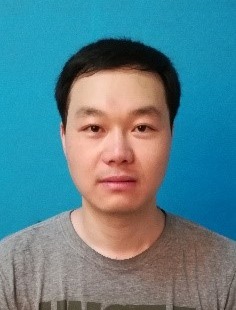
SHI Guangsen
Principal Investigator
Center for Neurological and Psychiatric Research and Drug Discovery
Personal Homepage
CONTACT
shiguangsen@simm.ac.cn
86-13770824216
528400
Health Medicine Demonstration Zone,Zhongruiou, Industrial Park, Cuiheng New District,Zhongshan, Guangdong Province
Biography
Guangsen received his bachelor’s degree from the School of Life Science, Nanjing University in 2008. He received PhD from Model Animal Research Center (MARC), Nanjing University in 2014. During his PhD career, he studied the molecular mechanism of the circadian clock feedback loops. Since 2015, he worked as a postdoc scholar in the Ptacek & Fu lab at University of California, San Francisco (UCSF). He screened and had identified several genetic mutations that are responsible for the natural short sleep phenomena. He joined Shanghai Institute of Materia Medica, Chinese Academy of Sciences (Zhongshan Institute) since June, 2021.
Education
2009.09-2014.06 Ph.D. Biology, Nanjing University
2004.09-2008.06 B.S. Biotechnology, Nanjing University
Work Experience
2021.06-Present Principal Investigator, Shanghai Institute of Materia Medica, Zhongshan Institute for Drug Discovery, Chinese Academy of Sciences
2015.03-2021.04 Postdoctoral Fellow, Department of Neurology, University of California, San Francisco
2008.07-2009.08 Research Associate, Model Animal Research Center, Nanjing University
Research Directions
Grants & Research Projects
Achievements
1. Identified three novel short sleep genes: ADRB1, NPSR1 and GRM1 (Neuron 2019, Sci Transl Med 2019, Curr Bio 2021).
2. Discovered the genetic interaction between two clock genes Fbxl3 and Rev-erba (PNAS 2013) and proposed a mathematical model for circadian period determination (Nucleic Acid Research 2014).
3. Identified the novel functions of Histone deacetylase 3 on clock machinery (Cell Reports 2016).
morefold
Social Titles
morefold
Awards & Honors
1. UCSF Weill Pilot Award for Junior Investigators (2020)
2. Outstanding PhD graduates of Nanjing University (2014)
3. The 64th Lindau Nobel Laureate Meeting, member of the Chinese PhD student delegation (2014)
4. Student of the Year, MARC (one student is selected for her/his excellent work each year) (2013)
5. National Scholarship for PhD students (2013)
6. National Scholarship for undergraduate students (2008)
morefold
Publications
Selected Publications
1. Shi G, Yin C, Fan Z, Xing L, Mostovoy Y, Kwok P, Ashbrook L, Krystal A, Ptácek LJ and Fu YH. (2021). Mutations in metabotropic glutamate receptor 1 contribute to natural short sleep trait. Curr Bio. 2021 Jan 11;31(1):13-24.e4.
2. Xing L#, Shi G#, Mostovoy Y, Gentry NW, Fan Z, McMahon TB, Kwok PY, Jones CR, Ptácek LJ and Fu YH.(2019). Mutant neuropeptide S receptor reduces sleep duration with preserved memory consolidation. Sci Transl Med. 2019 Oct 16;11(514).
3. Shi G, Xing L, Wu D, Bhattacharyya BJ, Jones CR, McMahon T, Chong SYC, Chen JA, Coppola G, Geschwind D, Krystal A, Ptácek LJ and Fu YH. (2019). A Rare Mutation of β1-Adrenergic Receptor Affects Sleep/Wake Behaviors. Neuron. 2019 Sep 25;103(6):1044-1055.e7.
4. Shi G#, Xie P#, Qu Z, Zhang Z, Dong Z, An Y, Xing L, Liu Z, Dong Y, Xu G, et al.(2016). Distinct roles of HDAC3 in the core circadian negative feedback loop are critical for clock function. Cell Reports. 2016 Feb 2;14(4):823-34.
5. Yan J#, Shi G#, Zhang Z#, Wu X, Liu Z, Xing L, Qu Z, Dong Z, Yang L and Xu Y. (2014). An intensity ratio of interlocking loops determines circadian period length. Nucleic acids research. 42(16):10278-87.
6. Shi G#, Xing L#, Liu Z, Qu Z, Wu X, Dong Z, Wang X, Gao X, Huang M, Yan J, et al. (2013). Dual roles of FBXL3 in the mammalian circadian feedback loops are important for period determination and robustness of the clock. Proc Natl Acad Sci USA. 110, 4750-4755.
morefold
Back




